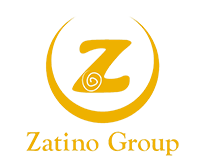Employment Opportunities in Ireland
Ireland offers a wealth of employment opportunities across various sectors, especially for those with qualifications in fields such as medicine, software development, and accounting. Graduates in these sectors often find stable white-collar jobs and have even successfully established long-term careers. However, those seeking roles in general business may find the competition higher and should be prepared for a potentially challenging job market.

Finding a Job in Ireland
If you are searching for employment in Ireland, there are numerous resources and support systems available to assist you. Whether you are looking for your first job after completing school or college, planning a career change, or returning to work, these services are designed to help you succeed.
Researching available job opportunities, crafting a well-prepared application with a compelling CV (curriculum vitae), and following up consistently are crucial elements of a successful job search. Employment services and supports are available to help anyone looking to enter or re-enter the job market.

Employment Rights and Minimum Wage
The salary you receive is generally negotiated between you and your employer during the job offer process. Most employees in Ireland are entitled to receive at least the national minimum wage, which is set under the National Minimum Wage Act 2000.
National Minimum Wage
Since 1 January 2024, the national minimum wage is €12.70 per hour, as outlined in the National Minimum Wage Order 2022. Employers may choose to offer higher wages, depending on the role and sector.
In some industries, such as cleaning and security, different minimum rates may apply. There are also sub-minimum wage rates for employees under 20 years of age. Employment Regulation Orders (EROs) may also set minimum pay rates in specific sectors through Joint Labour Committees. More information can be found in our document on Employment agreements and orders.

Tips for Successful Job Hunting
To enhance your chances of success in finding employment in Ireland, it is important to follow these best practices:
- Leverage Multiple Resources: Use a combination of job boards, recruitment agencies, and networking opportunities to find potential job openings.
- Tailor Your Application: Customize your resume and cover letter for each job application, ensuring you highlight your most relevant skills and experience.
- Prepare for Interviews: Practice common interview questions, research the company thoroughly, and be ready to demonstrate your unique value to potential employers.
By staying proactive, persistent, and well-prepared, you can successfully navigate the job market and secure the opportunity that fits your career goals in Ireland.
